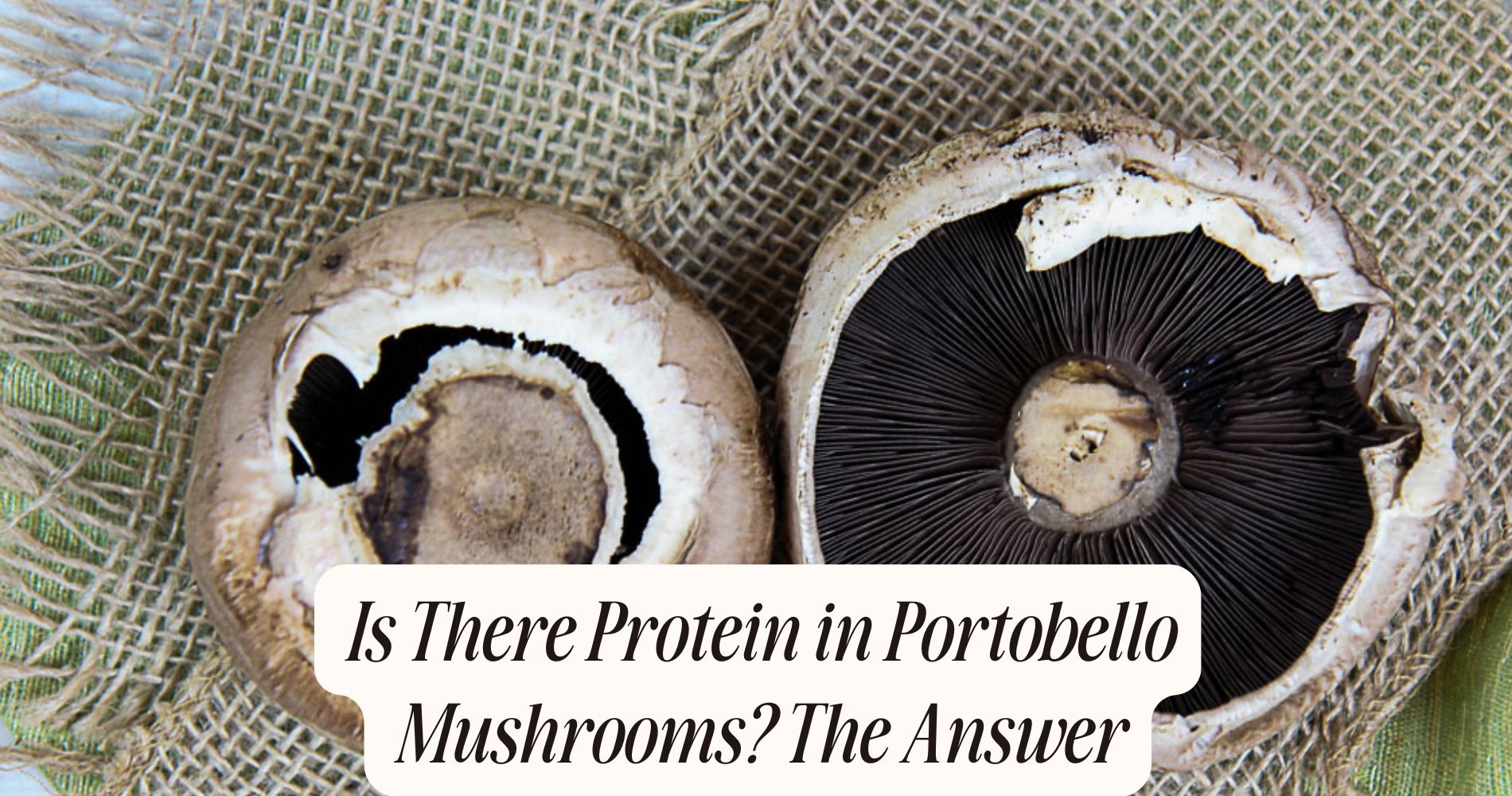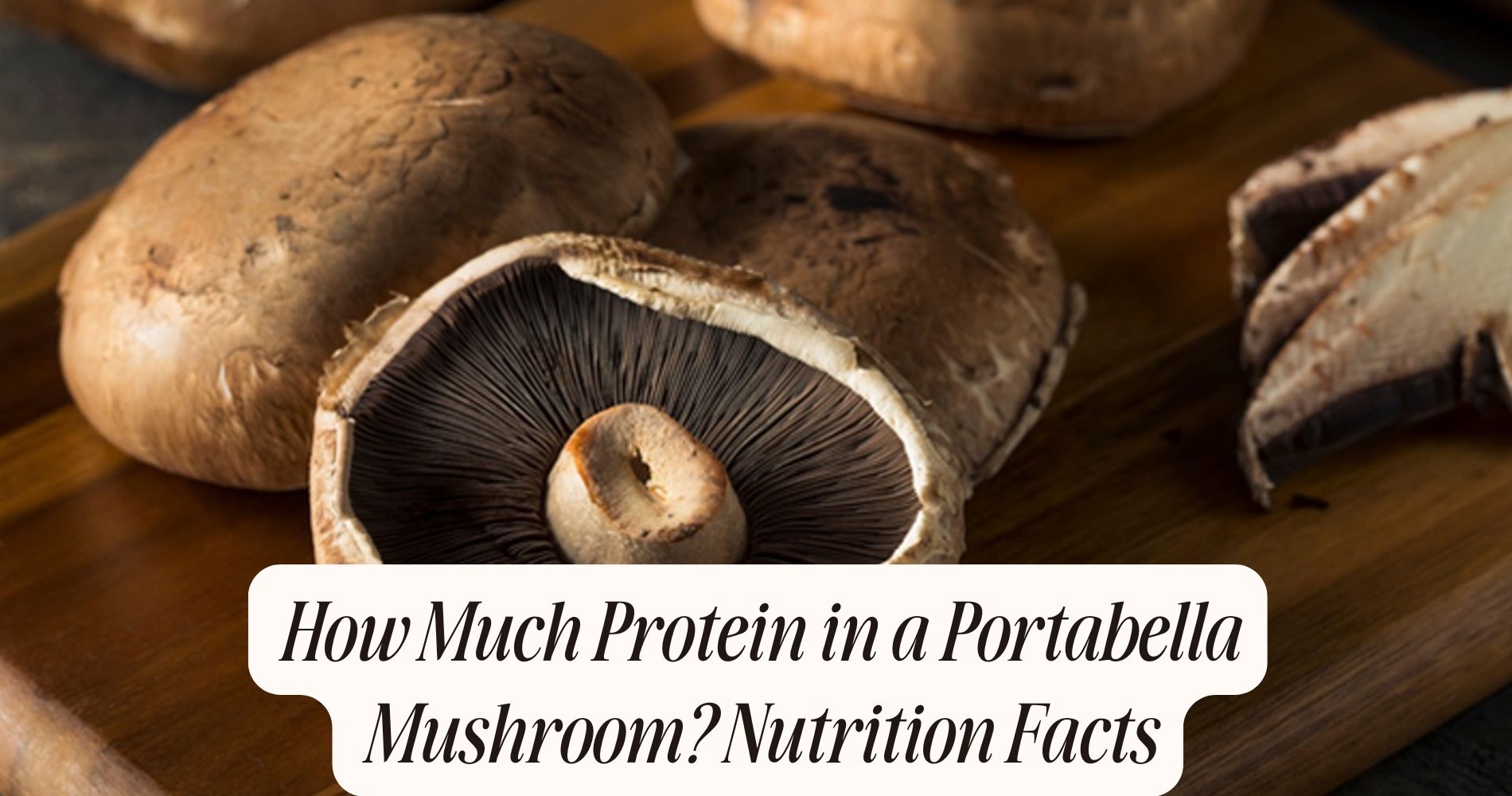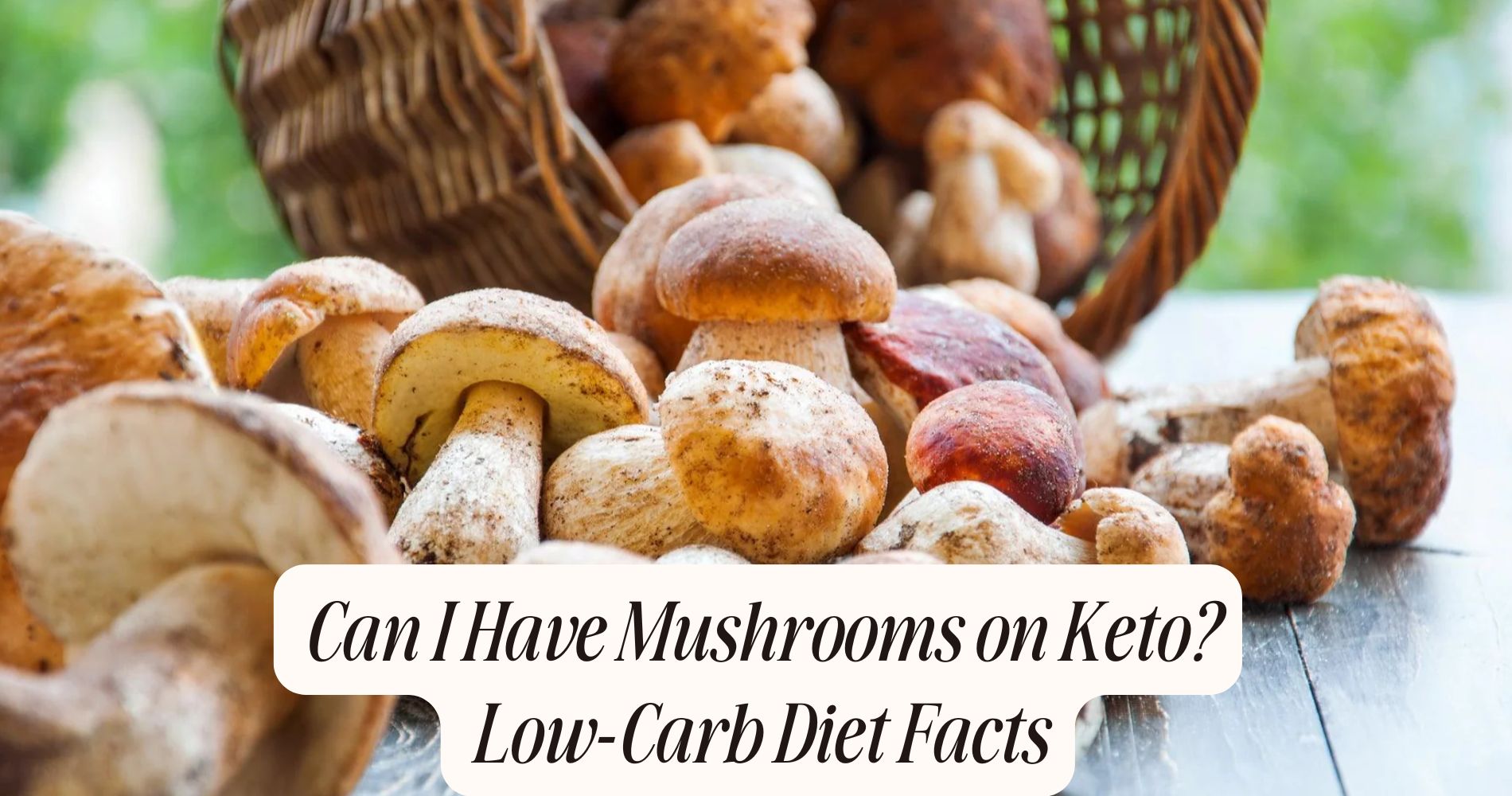
Is There Protein in Portobello Mushrooms? The Answer
Is there protein in portobello mushrooms? Portobello mushrooms do contain protein, offering about 3 grams per 100 grams. Though they have less protein than meat or legumes, portobellos surpass white button mushrooms with their content. Their rich umami flavor makes them a valuable addition to various dishes, enhancing flavor and offering essential nutrients. To preserve nutrients, consider steaming or grilling them. Curious to know more about how these versatile mushrooms can transform your meals? A deeper exploration awaits.
Understanding Portobello Mushrooms
Portobello mushrooms, scientifically known as Agaricus bisporus, are a mature form of the common button mushroom.
These mushrooms belong to a fascinating group of mushroom varieties that transform in flavor and texture as they age. Unlike their younger counterparts, portobellos have a robust, meaty texture making them ideal for various culinary uses.
You'll find them perfect for grilling, stuffing, or as a substitute for meat in vegetarian dishes. Their large caps can be used as a base for pizza or as a bun replacement in burgers.
Evidence suggests that their deep umami flavor enhances dishes, offering a satisfying taste experience. Understanding the versatility of portobello mushrooms allows you to expand your culinary repertoire with this delightful ingredient.
Nutritional Profile of Portobello Mushrooms
Although often celebrated for their culinary versatility, portobello mushrooms also boast a compelling nutritional profile that shouldn't be overlooked. When you incorporate them into your diet, you're gaining more than just flavor.

They're low in calories and fat, making them an excellent choice for weight management. Rich in dietary fiber, portobello mushrooms can aid digestion and promote a healthy gut.
They provide essential minerals such as potassium, which supports cardiovascular health, and selenium, known for its antioxidant properties. Additionally, these mushrooms are a source of important B vitamins, including riboflavin and niacin, which play critical roles in energy production and maintaining a healthy nervous system.
Protein Content in Portobello Mushrooms
When considering protein sources, portobello mushrooms mightn't be the first to come to mind, yet they offer a modest amount of this essential macronutrient. With about 3 grams of protein per 100 grams, portobellos contribute to daily protein intake.
While not as abundant as traditional sources like meat or legumes, their protein content is beneficial, especially for those exploring diverse mushroom varieties.
Portobello mushrooms contain proteins that, despite being less complete than animal sources, can still support dietary needs when combined with other foods. Their protein absorption is influenced by the presence of other nutrients in your diet.
Including portobellos in meals not only adds flavor but also enhances the overall nutritional profile. Consider them a valuable addition to your varied protein sources.
Comparing Portobello Mushrooms to Other Protein Sources
While portobello mushrooms provide a modest amount of protein, it's essential to compare them to other, more traditional protein sources to fully appreciate their nutritional value.
Regarding protein content, portobello mushrooms offer about 3 grams per 100 grams, which is less than meat, dairy, or legumes. For instance, chicken breast contains roughly 31 grams of protein per 100 grams.

However, among mushroom varieties, portobellos rank higher than white button mushrooms, which offer only 2 grams per 100 grams. This makes portobellos a better choice within the mushroom family for a protein boost.
Although they can't compete with high-protein foods like beans or eggs, understanding these protein comparisons helps you make informed dietary choices, especially when seeking plant-based options.
Benefits of Including Portobello Mushrooms in Your Diet
Despite their modest protein content compared to meat or legumes, portobello mushrooms offer several compelling benefits that make them a valuable addition to your diet.
Rich in antioxidants like selenium and vitamin D, they contribute to improved immune function and bone health. Their low calorie and fat content make them an excellent choice for weight management, while their fiber supports digestive health.
Additionally, portobello mushrooms are versatile in culinary uses, making them a great meat substitute for various dishes. Their umami flavor enhances the taste profile of meals without added sodium.
Including portobellos in your diet can provide essential nutrients and diversify your meal options, contributing to overall well-being and offering numerous health benefits.
Cooking Methods to Maximize Nutrient Retention
To maximize nutrient retention in portobello mushrooms, consider employing cooking methods that preserve their valuable compounds. Steaming techniques are highly effective, as they minimize nutrient loss by reducing exposure to high temperatures and water.
By steaming portobellos, you can maintain their protein content and essential vitamins. Make certain the mushrooms don't touch the boiling water, and steam them for about 5-7 minutes until tender.
Grilling tips also help retain nutrients while enhancing flavor. Preheat the grill to medium heat, and brush the mushrooms lightly with olive oil to prevent sticking.
Grill for 4-5 minutes on each side. This technique retains their nutrients due to the shorter cooking time and lack of direct contact with water, making for a delicious and nutritious result.
Portobello Mushrooms in Plant-Based Diets
Portobello mushrooms not only retain nutrients through thoughtful cooking methods, but they also play a significant role in plant-based diets.
These mushrooms offer a valuable source of plant-based protein, making them a popular choice for vegetarians and vegans alike. With about 3 grams of protein per cooked cup, they help meet dietary protein needs when combined with other plant sources.

As mushroom alternatives to meat, portobellos provide a savory, umami flavor that enhances various dishes. They're low in calories and rich in essential nutrients like B vitamins, selenium, and potassium, contributing to overall health.
Creative Recipes Using Portobello Mushrooms
When exploring creative recipes featuring portobello mushrooms, it's essential to appreciate their versatility in both flavor and texture. Research indicates that these mushrooms provide a substantial umami profile, enhancing a variety of dishes.
One innovative approach involves crafting stuffed caps. You can fill these large, hollow mushrooms with nutrient-dense ingredients like quinoa, spinach, and feta. Evidence shows this combination supplies a balanced meal with essential amino acids and fibers.
Another popular method is making mushroom burgers. Portobello mushrooms serve as an excellent meat substitute due to their robust texture. Studies suggest grilling them enhances their natural flavors.
You can top these burgers with avocado, tomato, and lettuce, creating a satisfying, plant-based alternative rich in vitamins and dietary fibers.
Balancing Your Diet With Portobello Mushrooms
As you endeavor to achieve a balanced diet, consider incorporating portobello mushrooms due to their rich nutritional profile. They're not only low in calories but also provide essential nutrients that support overall health.
Portobellos are an excellent source of B vitamins like niacin and riboflavin, which aid in energy production and metabolic function. Their antioxidant properties, particularly from selenium, help combat oxidative stress, enhancing your dietary balance.
Including portobello mushrooms in your meals offers notable mushroom benefits. They're a good source of fiber, promoting digestive health, and contain potassium, vital for maintaining healthy blood pressure.
Their protein content, while moderate, complements plant-based diets effectively. By adding portobello mushrooms, you're enhancing nutrient diversity, supporting various bodily functions, and contributing to a well-rounded diet.
Elevate Your Nutrition with Well Gummies
While portobello mushrooms offer a natural source of protein, you can take your wellness to the next level with Well Gummies 10-IN-1 Mushroom Gummies. Packed with 10 powerful mushrooms, these vegan gummies support brain function, immune health, and sustained energy in a delicious, chewable form. With a fresh wild berry flavor, they’re as tasty as your favorite candy—no jitters, no crash, just pure, balanced support. Enjoy the benefits of mushrooms the easy way and fuel your body with every bite!
Frequently Asked Questions
Are Portobello Mushrooms Suitable for People With Mushroom Allergies?
If you've got mushroom allergies, portobello mushrooms aren't suitable. Your dietary considerations should exclude them due to potential allergic reactions. Consult a healthcare professional for alternatives and to guarantee your diet aligns with your health needs.
How Do Portobello Mushrooms Impact Blood Sugar Levels?
You'll find that portobello mushrooms have a low glycemic index, meaning they don't spike your blood sugar levels considerably. They're a smart addition to a balanced diet, helping maintain steady glucose levels and support overall health.
Do Portobello Mushrooms Require Specific Storage Conditions?
You should store portobello mushrooms in a paper bag in the refrigerator to optimize shelf life. This storage method prevents moisture buildup, which can cause spoilage. Scientific evidence shows this extends their freshness for up to a week.
Can Portobello Mushrooms Be Eaten Raw Safely?
You can safely enjoy portobello mushrooms raw. They offer health benefits, including essential nutrients and antioxidants. However, guarantee thorough cleaning to avoid contaminants. Eating them raw may enhance nutrient absorption compared to cooked consumption.
Are Portobello Mushrooms Environmentally Sustainable to Grow?
Portobello mushrooms are environmentally sustainable to grow. They require less water and land compared to other crops. Sustainable farming practices for portobellos reduce waste and emissions, offering significant environmental benefits, supporting biodiversity, and conserving natural resources.
Conclusion
Incorporating portobello mushrooms into your diet is a smart choice. While they contain some protein, they're not a primary protein source. However, their rich nutrient profile, including vitamins, minerals, and antioxidants, offers various health benefits. By creatively preparing portobello mushrooms, you can enhance your meals and support a balanced, plant-based diet. Consider pairing them with other protein-rich foods to guarantee you're meeting your nutritional needs while enjoying their unique flavor and texture.




